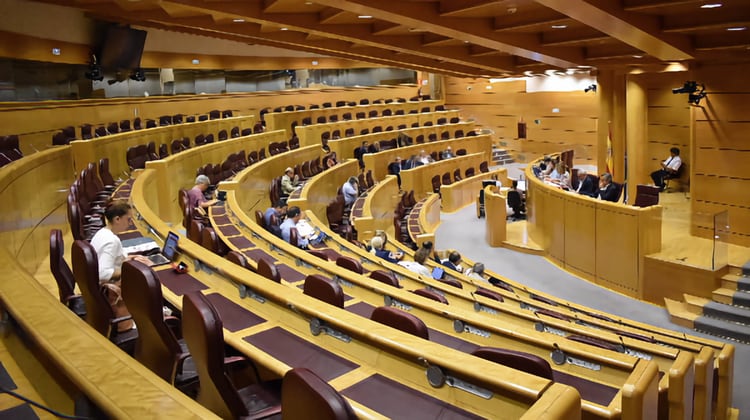The Diplomat
The Senate’s Ibero-American Affairs Committee yesterday backed the government’s decision to offer Spanish nationality to Nicaraguan opponents who have been rendered stateless by Daniel Ortega’s “dictatorship”. It also called on the government to demand the release of political prisoners who are still in jail, including Cardinal Rolando Álvarez.
The motion, which had initially been presented by the PP in 2021, was updated with an amendment presented by UPN following the latest events in Nicaragua, after the release of 222 political prisoners who were sent to the United States and deprived of their nationality and the order to withdraw the nationality and seize all their assets of another 94 opponents. In the end, the consensus text had 25 votes in favour, including PP and PSOE, and only two abstentions, reports Europa Press.
The senators encourage the Government to continue with its offer of nationality “to all those Nicaraguans declared stateless by the dictatorship of Daniel Ortega”, after considering that it is an “appropriate, correct and necessary decision in defence of freedom and human rights” in this Central American country.
They also ask the Executive to continue to “reject and condemn the withdrawal of Nicaraguan nationality (…) from political prisoners expelled from their country and those who remain imprisoned” and to demand the release of political prisoners who remain imprisoned, including Bishop Rolando Álvarez, “a symbol of resistance to the dictator”, to whom the senators also express their “solidarity and support”.
On the other hand, the senators want the government to take the lead from the EU in “all those measures that will put an end to the violation of human rights in Nicaragua, including the intensification of individual sanctions, the prevention of entry into European territory, as well as the freezing of assets”.
They also ask him to propose to his European partners to study the possibility of suspending Nicaragua from the Association Agreement between the EU and Central America, given that there is a provision that requires “respect for democratic principles and fundamental human rights”.
During the defence of the motion, the PP spokesman, Gonzalo Robles, considered the release of the 222 opposition members to be “good news”, but warned that it was a “false mirage” and in no way a solution to the situation in the country.
“Even if they were released, the whole of Nicaragua is held hostage, there is no freedom, there is no capacity for movement”, he stressed, also denouncing the persecution of NGOs, religious orders and even former Sandinista leaders.
Robles also justified going ahead with this motion so that Nicaragua “does not become a forgotten crisis”, while maintaining that on this issue “there should be no political advantage” as “the only thing that moves us is the life of the people and human rights”.
For her part, the PSOE spokesperson, María del Mar Arnáiz, described as “abominable” the fact that the “dictator Ortega” has replaced the “unjust imprisonment” of more than 200 opponents “with forced exile”, while at the same time vindicating the position shown by the government throughout this time. “Spain is not indifferent to the authoritarian drift of the dictator Ortega”, he stressed.







